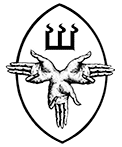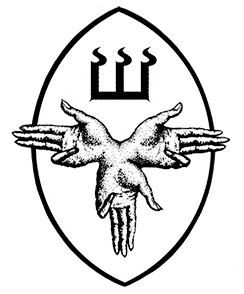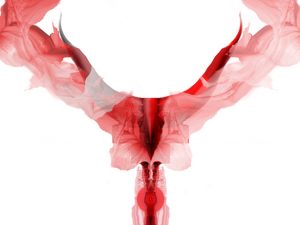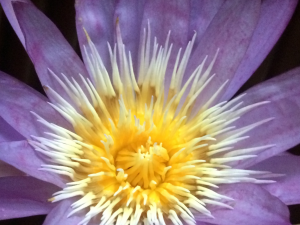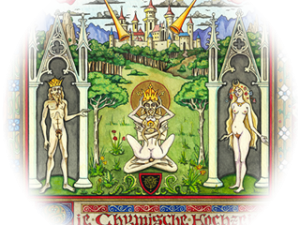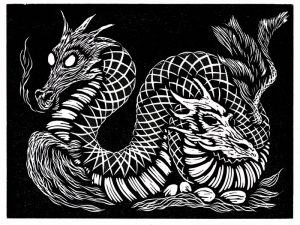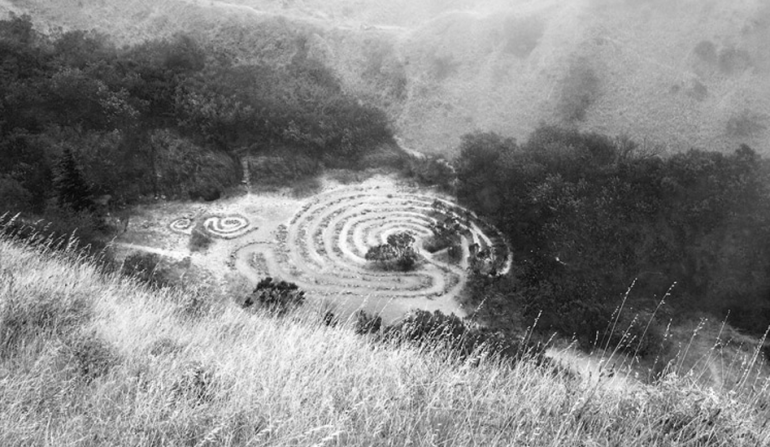
‘And this, one might say, has become the natural condition of the gods: to appear in books – and often in books that few will ever open. Is this the prelude to extinction? Only to the superficial observer. For in the meantime all the powers of the cult of the gods have migrated to a single, immobile and solitary act: that of reading.’
Roberto Calasso,
Literature and the Gods
Calasso’s words are no new revelation. From the early German Romantics to the Symbolist movement the ritualization of reading, and the ecstatic act of inspired writing, were a continual preoccupation. Due to the literal association of fiction with the prosaic this quality of magic was usually reserved for the poetic medium. As Arthur Rimbaud put it:
The poet makes himself a seer by a long, immense, and rational derangement of all the senses. All the forms of love, of suffering, of madness… he searches himself, he consumes all the poisons in himself, to only keep their quintessences. [1]
At times with Rimbaud it seems the transformation of the poet is more important than the end product of the work itself, but earlier Romantics placed great faith in the power of the written work itself to transform the reader.
It was only with the advent of Modernism and the stranglehold of literary realism from which literature has not escaped since, that this understanding has evaporated. With the novel being a relative latecomer among literary forms most of the development of the art have fallen within the eras that associate supernatural themes with the lowbrow.
In contemporary literature material that deviates from depictions of ordinary consensual reality is now relegated to ‘genre fiction’ and formulated to appeal to the mass-market. For this reason it has become desirable to forge a new occult literature, and theoretical material to support it. As Calasso so well sums up above, the act of reading the written word is one of the unacknowledged ritual forms of the modern era. It would therefore behoove us, as our eyes swim daily in text, to raise the act of its execution to ritual and remember our awe in the face of its power.
Whilst the literati no longer support a magical vision of writing and reading there is no way to approach the theory of occult literature, as I hope to briefly touch on, without it. For genuine occult fiction, as Richard Gavin elucidated in his essay ‘Through the Gate of Horn – Occult Fiction and the Primordial Image’,[2] by its nature is written from inside the experiential dimension of the occult. Unlike the mainstream horror novel that utilizes the machinery of witchcraft or magic to shock or disturb, whilst implicitly asserting a battle for normality, occult fiction aims to do something quite different. Occult fiction, as Gavin puts it is ‘a deliberate Dionysian rending of the veil’,[3] it voices the Unseen rather than creates a Passion Play around the Other’s subjection and destruction.
Occult fiction, as opposed to mainstream supernatural horror, is written from inside the artistically contorted consciousness of a mind that has undergone what Rimbaud called the ‘rational derangement of the senses’. By following those crooked contours the reader, if they are receptive is able to sense the fragrance of the unheimlich that clings around the edges of the words and nestles in the silence between them. Each word becomes a thorn that pierces the veil and allows for some of the manna that lies beyond to seep through like a bloodstain.
This notion of writing and reading as a ritual act was a familiar one to the Romantics[4]and I believe it is more important than ever that we resurrect this notion. Lest we fall prey to exhausted narratives and the steady march of mediocrity we must explore ways to twist and surprise language to wake the reader from the apathy of custom. There is only one place this happens, the pungent interstices where the Otherwise gallops through the holes in normative awareness. When this happens new myths are able to take form, narrative reveals its depth dimension, and story takes on transpersonal regenerative meaning.
Some of the emergent work on Folk Horror[5] can be of use to us in building a theory of occult fiction, but only in so much as those tales that draw on folklore fit the dimensions laid down by Gavin, rather than asserting a punitive response to the monstrous evacuations of the Unseen. Never before in history have we had access both to the means to use text on such a scale and the lack of prohibition around this topic. We must stand prepared to be vehicles for this eruption, but also to insist on the potential of such work to potentially obtain the status of high literature, in the teeth of all mainstream assertions to the contrary.
To fully articulate such a vision a theory as well as a practice of occult fiction is needed, a theoretical language that we ourselves define and own. Otherwise such efforts will be sporadic and fragmented at best. As an occultist with a history in Literary Theory it is impossible to remain unaware of the haunted quality of texts. When one reads the words of the dead, burned into the page with the fire of immediate mystical revelation, when the necrosophic voice echoing out from the page takes a moment, seemingly outside of time, to reflect on its own future echoes… at such moments the sensitive mind is pierced and reddened with the sacramental import of such transmissions.
In Transcendental Magic Eliphas Levi speaks of a ‘magic chain’ that passes between initiates ‘by signs, by speech and by contact.’ He also allows for this magnetic transmission to occur via writing:
Printing is an admirable instrument for the formation of the magic chain by the extension of speech. No book is lost; as a fact, writings go invariably precisely where they should go… We have proved this a hundred times in the course of our magical initiation; the rarest books have offered themselves without seeking as soon as they became indispensable. [6]
It is easier of course to become cognizant of the power of text when running one’s fingers over hundreds-of-years-old handwriting, accosted by the smell of long sedentary dust, it is also easier when holding in one’s hands a beautiful goat-bound volume of modern invention! However the power of occult fiction to create spirit-traps formed of the written word can go beyond the casing in which the words are presented to maintain potency even when presented digitally, -if the rending of the veil through which the words pour is deep and dangerous enough.
There should indeed be teachings in genuine occult fiction, but what is important is the way it shocks us into a new state of being. It must aim for what Rimbaud described as a ‘rational derangement of all of the senses’, not only for the writer but the readers also, yet it must be disciplined by theoretical mediation to maintain the quality of reason and not become unintelligible. The work of literary theory should not be, as it has become in too many mainstream contexts, a tool to suck the livingness and joy from literature leaving a barren husk, but instead an act of mindful contemplation, a defamiliarisation, a technique of self-enchantment. In short, a properly executed theory of literature has the potential to engender a ritual of reading. Occult literature can teach the reader a great deal, but theory teaches us how to read it, and when a writer of power finds a prepared reader genuine sorcery occurs across great distances, via the two-way-mirror of text.
A work of occult fiction is often a subtle record of the writer’s own Great Work, it charts their interior processes and exposes the intimate distillations of their materials, but it also has the potential to become a philosopher’s stone that acts on reality, something that can produce gold when it comes into contact with other metals. Through a combination of the contortion of language by the Unseen and the receptive preparation of the reader’s mind, it is possible for what begins as idiosyncratic symbols, relevant only to the writer’s inner landscape, to become active upon others. It is in this mysterious space between revelation and exposition that narrative takes on the mantle of myth.
Notes
[1] Arthur Rimbaud, Complete Works, Selected Letters, trans, intro. and notes Wallace Fowlie (Chicago: U of Chicago P, 1966) 307.
[2] Richard Gavin, Through the Gate of Horn – Occult Fiction and the Primordial Image, Clavis Journal, Vol III
[3] Ibid.
[4] For more on this see my essay ‘The Romantic Age Roots of Traditional Witchcraft’ inHands of Apostasy: Essays on Traditional Witchcraft, edited by Michael Howard and Daniel Schulke.
[5] Horror that draws on material from folklore.
[6] Eliphas Levi, Transcendental Magic, Weiser Books; 2nd edition (January 15, 1968) p.61-62
